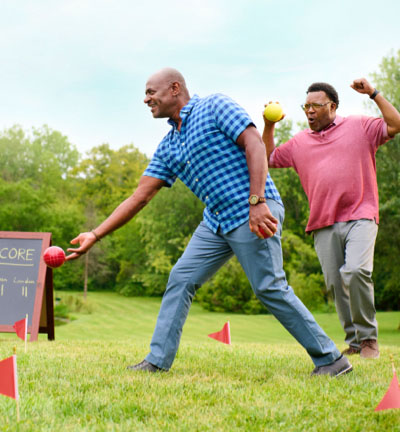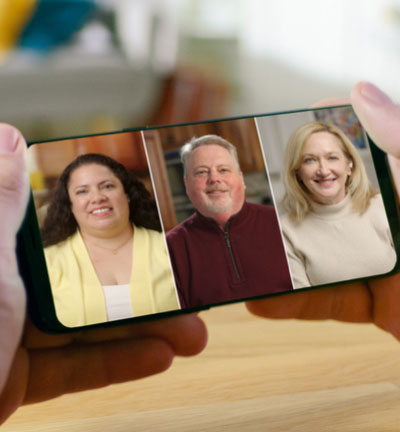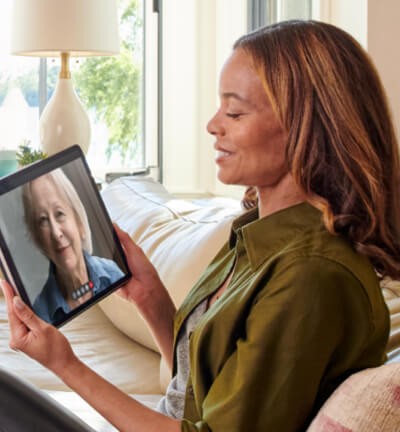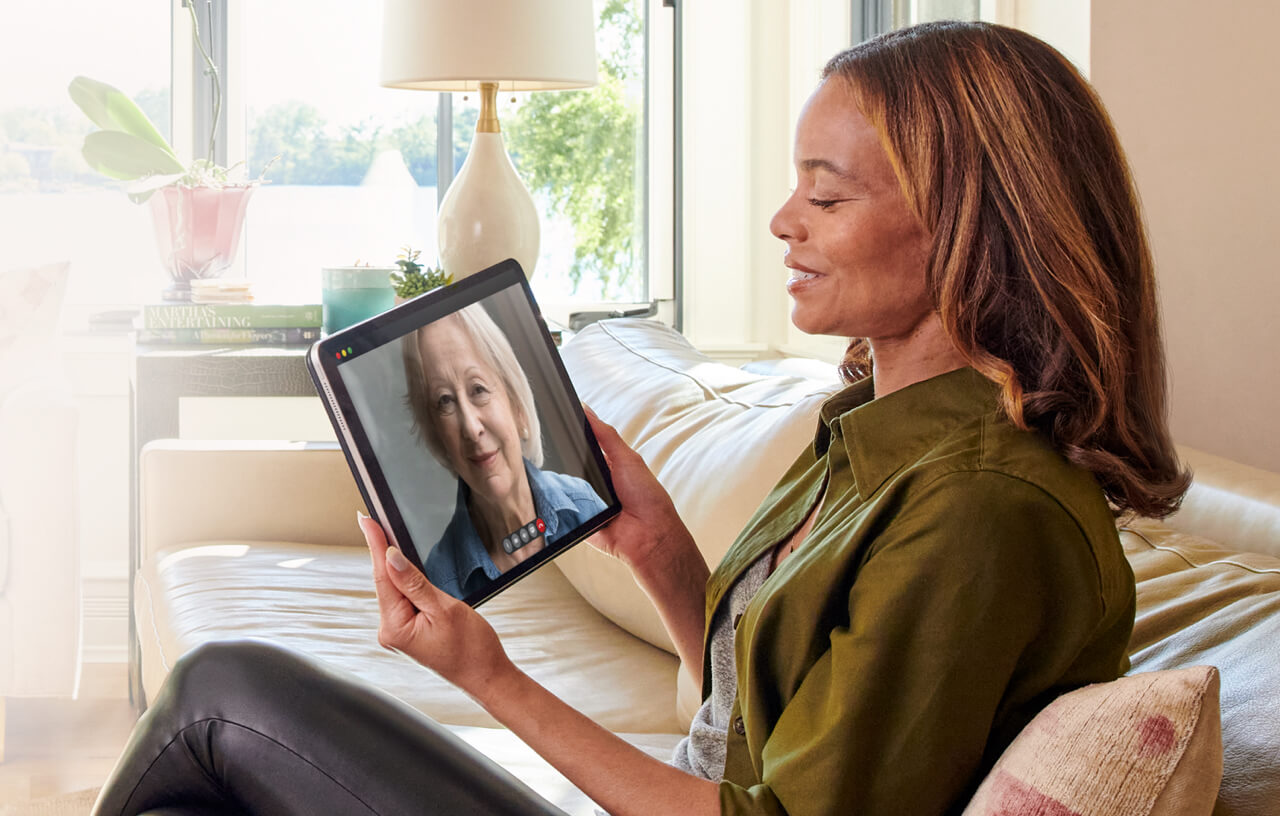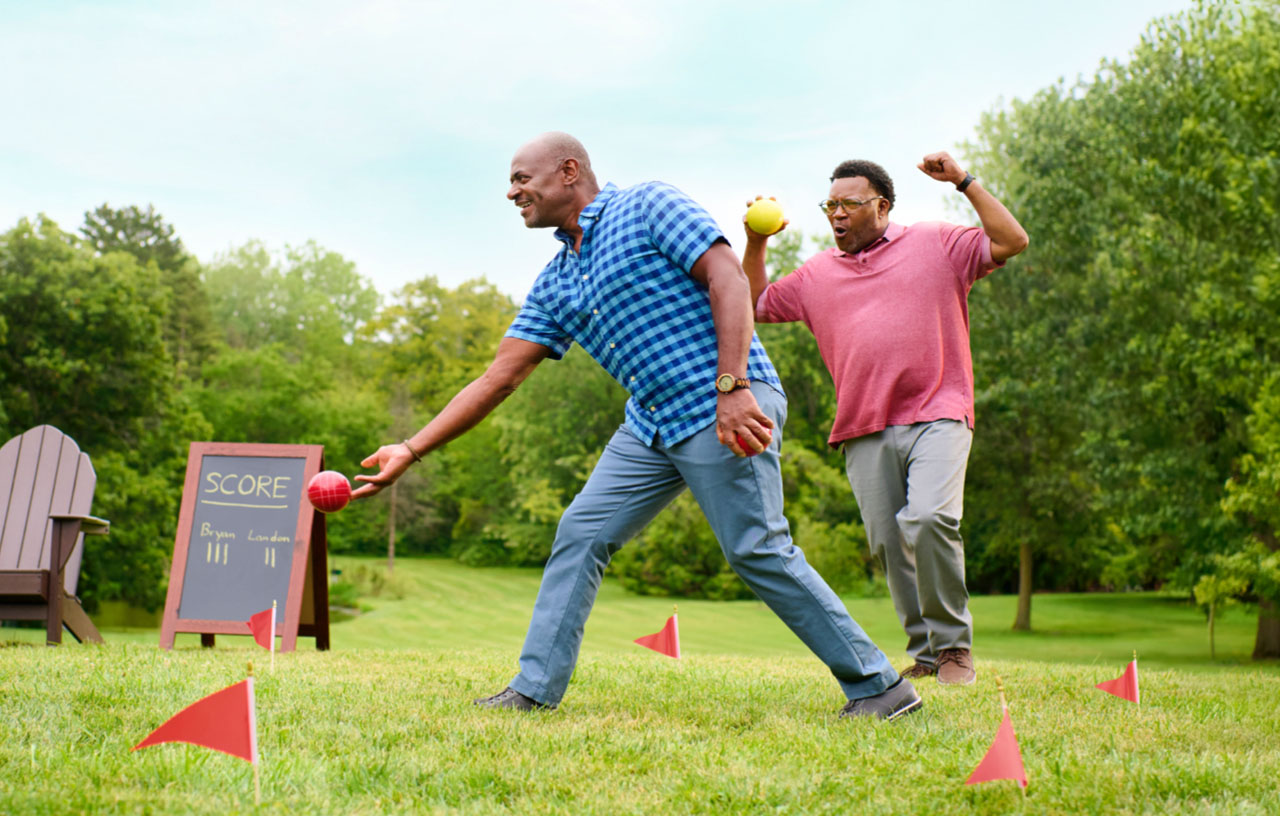When you’re living with MG, it’s easy to feel alone and like no one truly understands what you’re going through.
Myasthenia gravis (MG) is a rare disease and some people who are living with this disease may not always have visible symptoms. For these reasons it may be harder for people who don’t have the disease to understand and empathize with how those in the MG community are feeling. Additionally, many people may feel that their loved ones, friends, coworkers and healthcare providers don’t fully understand what MG is or how it affects them.
This lack of understanding, as well as the overall challenges that come with living with an autoimmune disease, may lead someone to internalize their struggles, hesitate to ask for help and feel lonely, isolated or stressed.
Bryan* was diagnosed with MG in 2017 after seven long years of searching for the cause of his muscle weakness and fatigue. “During my first few years of experiencing symptoms, a lot of people didn’t believe I was sick. Family, friends, hospitals, even just out in public. One time, someone walked up to me and asked why I needed a cane. Unfortunately, I’ve had a couple of interactions like that,” Bryan remembers. He goes on to mention that sometimes people unfamiliar with MG may try to provide unsolicited advice or recommendations. He adds, “Receiving empathy and understanding early on in my journey would have made things a lot easier and a lot less stressful.”
Courtney* has lived with MG for more than 20 years. She shares, “I think a lot of times we often stress about the unknowns. What if tomorrow I can’t get up or what if I can’t do my hair or drive?” These stressors are all too familiar among those living with MG because symptoms can be unpredictable. Therefore, making and keeping plans may be difficult, which can contribute to feelings of guilt and loneliness.
MG crisis and stress
It’s important to remember the emotional and mental health effects of MG matter just like the physical ones.
Like MG symptoms, MG triggers can vary from person to person, too. MG triggers can cause symptoms to flare up and even lead to an MG crisis where it becomes hard to breathe on your own. And, some of those triggers can include physical and environmental stressors and emotional stress.
Trying to reduce the stress that may come with MG, or from caring for a loved one with MG, may be beneficial. Stress-relieving techniques can be good to have in your toolbox for difficult conversations, healthcare appointments, caregiving and more.
Tools for managing MG symptoms and stress
“Meditation helps me with my stress,” Courtney shares. She goes on to say, “There are times when, let’s say, my hands are weak and I’m trying to fasten my necklace. If I get really anxious, I can’t do it. But if I pause, calm my mind, take some deep breaths and stop fixating on how long it’s taking me, I’m able to do it. And that, to me, is a great example of how meditation works. It really makes you cut out the noise and focus on the moment.”
Courtney is a life coach and longtime meditation practitioner. She designed this six-minute, beginner-friendly guided meditation with the MG community in mind.
After his MG diagnosis, Bryan found himself turning to meditation as well. “At first, I had a lot of difficulty handling the stress associated with MG. I experienced depression, anxiety and panic attacks.” Bryan adds, “Stress can really cloud your head, and I believe stress can affect you physically as well.”
If people, especially people with MG, find themselves stressed out, I think that meditation can be a very helpful tool.
Bryan believes there are many ways to meditate. But his favorite technique taps into his own personal experiences. “I start picturing a garden. I can smell the flowers. I can see the colors of the flowers. I can see the trees and the sky. I also see my grandparents and I’m able to talk to them, which is something that used to bring me so much joy.”
If you’re new to meditation, or just looking for some pointers, Courtney has some recommendations that may be helpful.
Courtney’s meditation tips:
Focus on your breath, but don’t beat yourself up if you feel like you can’t take long, deep breaths
Go at your own pace. If a guided meditation says take a four-count breath and that’s difficult for you, adjust it
If your mind wanders, that’s OK. You don’t have to be completely without your thoughts. Simply acknowledge them and move on
If you like to have music on while you meditate, have music on. If you find it best to lie down, do so! Be sure to make the practice your own
Start slow. Try for five minutes a day and try to be consistent
Stress reduction techniques and tracking your symptoms may be good ways to help manage MG symptoms. One way to track symptoms is the Myasthenia Gravis Activities of Daily Living (MG-ADL) scale. Similar to meditation, developing a routine around tracking symptoms regularly may be a good idea.
Meditation gives me a better frame of mind and a better outlook.
Your self-care, your way
At the end of the day, you have to enjoy your form of self-care and stress relief. Courtney believes what works for one person may not necessarily work for everyone. Bryan agrees and encourages people to keep looking for which stress relieving strategy works for them. He mentions, “I found it helpful to find a therapist because there’s nothing wrong with seeking help from a mental health professional.” During a stressful moment, he opts for grounding techniques. “Grounding is a coping strategy that is designed to connect me to the present moment.” He goes on to say, “Meditation and grounding techniques are simple tools that have a great impact for me.”
Caregivers can also be a source of helpfulness and support. Whether that’s offering rides, accompanying you to appointments or providing a listening ear. Bryan says, “At first my husband didn’t understand what I was going through with my MG. But now he goes with me to my appointments, he advocates for me, he goes to all my support group meetings and he volunteers. We’ve come such a long way.”
Additionally, Let’s Talk MG is a resource that connects people living with MG and caregivers to someone who gets it. In one-on-one conversations with an MG Guide, you can share challenges and stressors as well as personal insights that may help you better manage life with MG. Bryan and Courtney, who both understand the impact a lack of empathy can have on someone living with MG, are both MG Guides for the program. Through Let’s Talk MG, they work to help people feel seen, heard and understood.
A broader range for empathy and understanding is necessary when it comes to MG. But, managing stress with tactics such as meditation may provide much needed comfort and a sense of peace.
If you’re looking for a stress reliever on the go, you can download the audio version of Courtney’s guided meditation now.


